Growing milky oats
Growing milky oats is simple and then use the young, green pods to make an infusion; it has a wonderful calming effect on the stressed-mind.
Growing milky oats is not difficult. Plant the seeds, water and watch them sprout in a few days; and then flower. Within two months you can enjoy the harvest.
There are two aromas that particularly tickle my fancy. One most of us know; it's the fragrance given off by unrefined oats porridge that is gently simmering on the stove.
A brew of milky oats is similar but not quite the same; both bring a sense of calm and relaxation.
The other aroma is not known to most folk; the incredible whiff given off by grains as they are being milled. It's not dissimilar to the fragrance of baking-bread but also not quite the same.
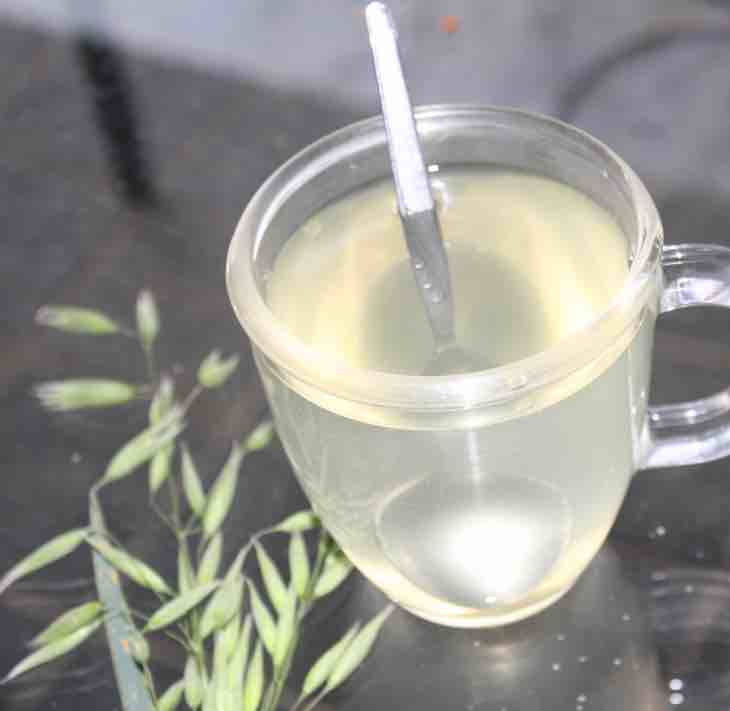
Inter-planting with green peas will provide nitrogen for the milky oats; that's one of the joys of growing legumes. They need the element for making protein and share it with other plants in the area.
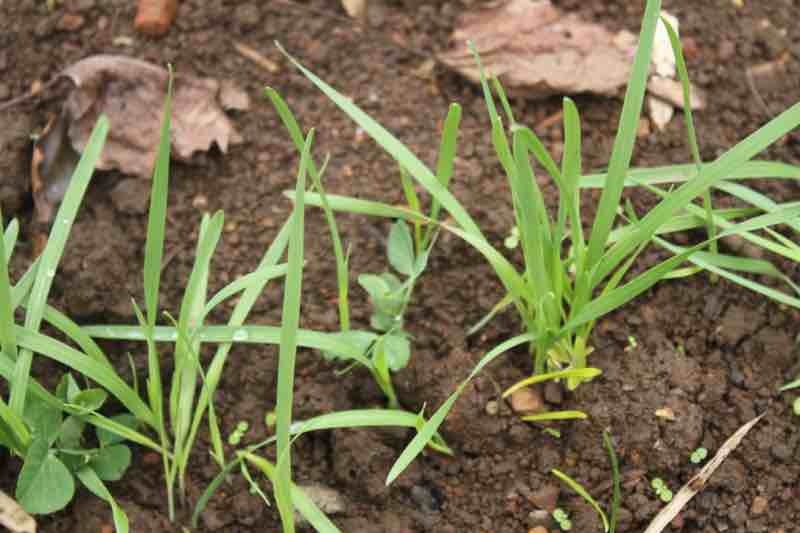 Baby milky oats plants interspaced with green peas.
Baby milky oats plants interspaced with green peas.Here are the oats plants some two months later in early spring; the first seed-pods are just appearing.
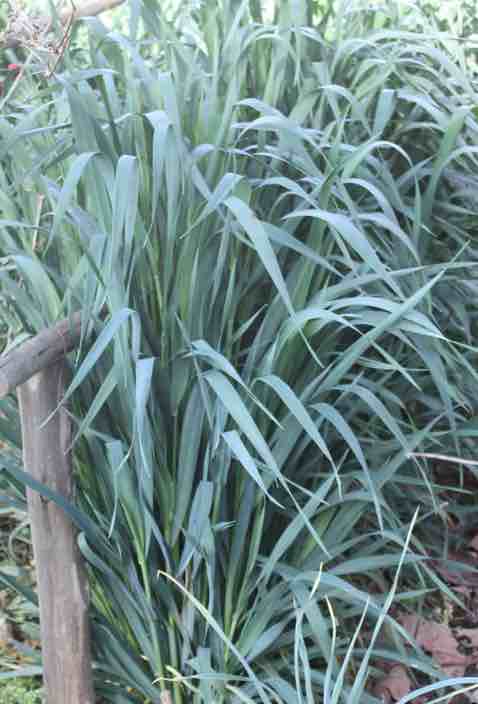
The immature seeds contain a unique milk juice that is used widely in herbal medicine for a calming balm when we are upset and anxious.
Harvesting these green seeds is part of what we understand by forest bathing; getting out into nature, away from the world that wearies so; and allowing the senses to roam. The feel of the young pods, the fragrance as one plucks them and embracing nature to restore and heal us is one part of what growing milky oats is about.
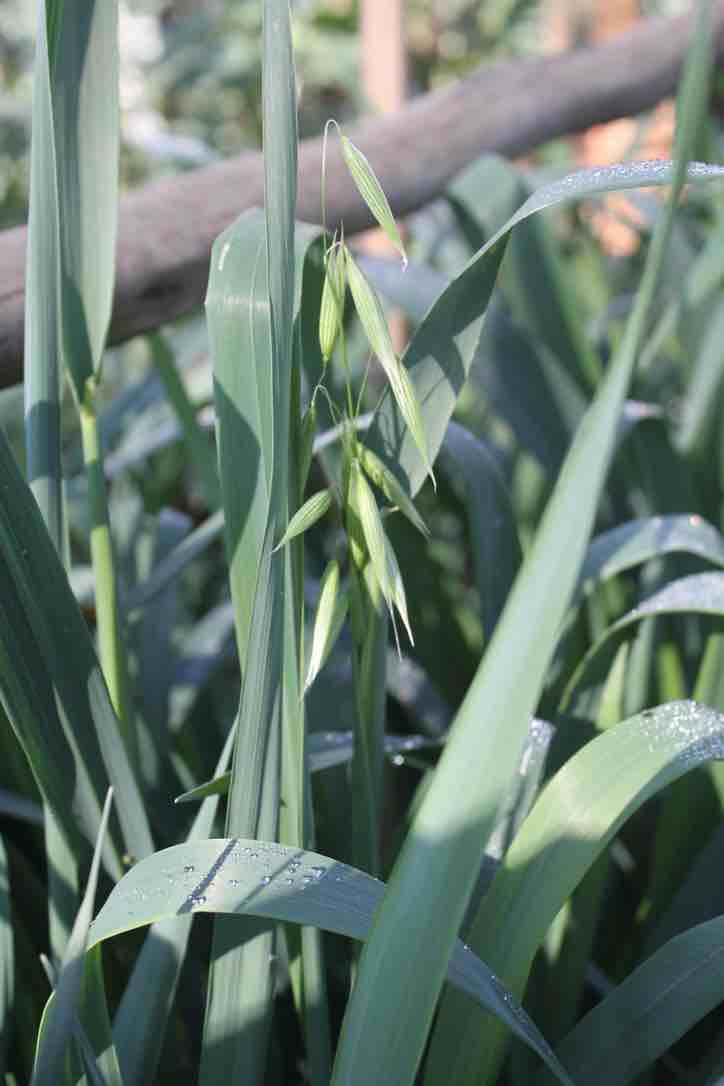
So many of us are working far too hard and sleeping poorly; it leaves us feeling worn out and anxious. Growing milky oats may just be part of the solution. Perhaps we need to consider whether it's worth all that effort to sustain a lifestyle that really should be pruned.
Earn a little less, pay fewer taxes and enjoy life a bit more; doesn't it seem appealing? That is what I am finding.
The concept of "less is more" is actually attributed to the poet Robert Browning.
First you need a packet of seeds; they are not expensive. Draw a shallow trench in the ground with a hoe. In South Africa we do this in late summer and then the oats grow through the winter.
Pop the seeds into the shallow trench, cover with soil and tamp it down. You're done; growing milky oats is that easy. If you have dry winters as we do then you will have to irrigate the plants.
We like to plant oats and peas together; the legumes add nitrogen to the soil and the grain provides a structure for them to grow on. It's easier that putting in stakes or a trellis.
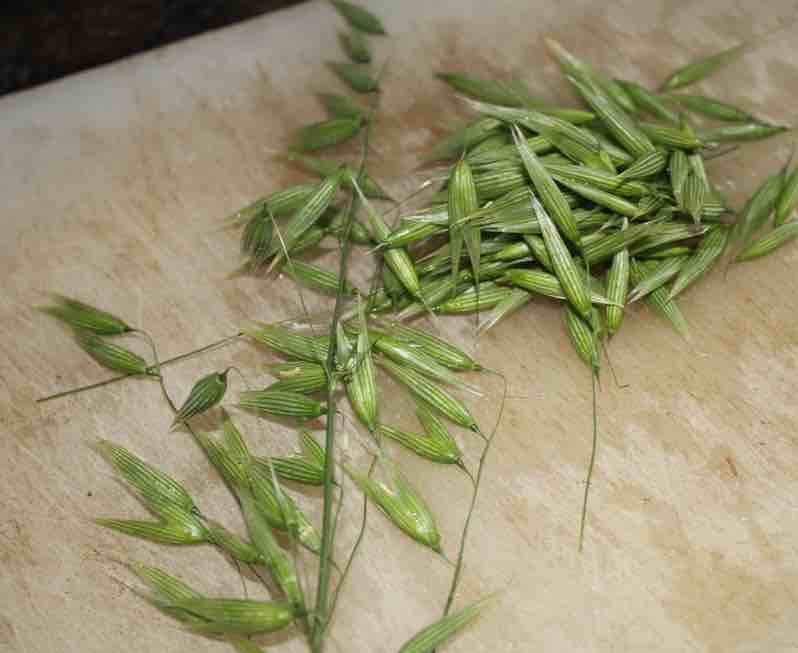
The peas started bearing a couple weeks before the first milky-oats pods began to appear; they are incredibly sweet and tasty.
Once the crops of peas and oats are finished they will make wonderful dry matter for the compost heaps.
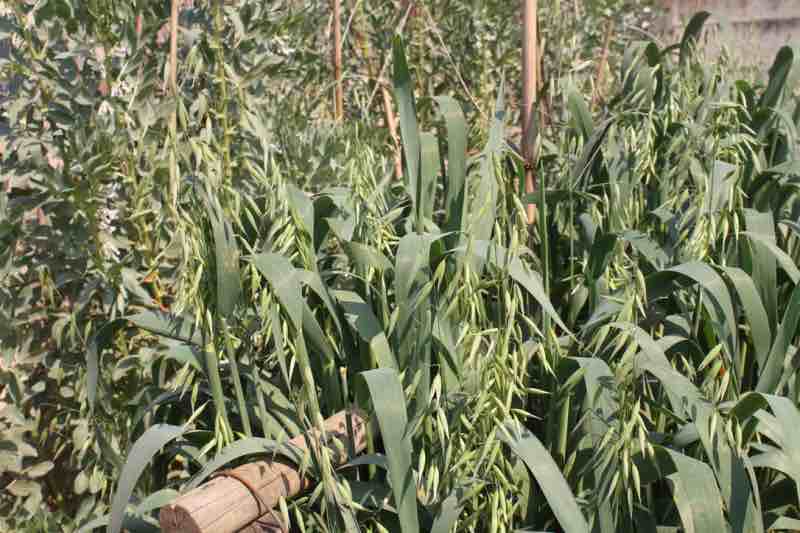
A herbal tea
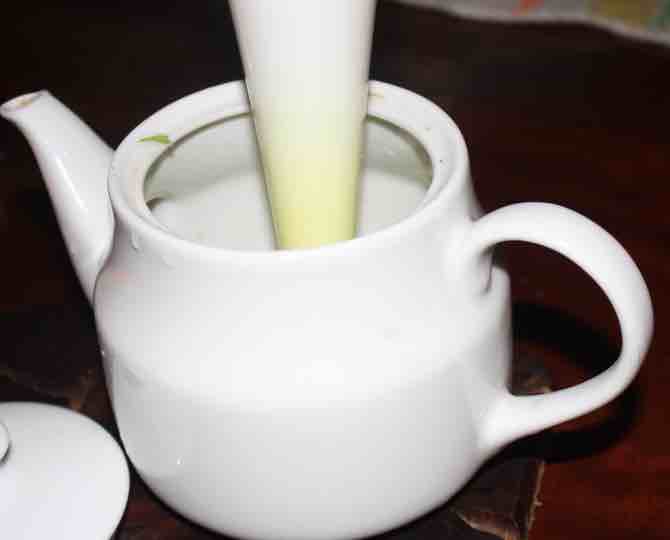
Simply strip the pods of milky oats off the stem, drop them into a pot and cover with boiling water.
Use a stick-blender or even a pestle and mortar; this helps to draw out the subtle, unknown phytochemicals that give oats its aroma, taste and calming properties.
Strain the milky oats infusion into a cup, add a few drops of freshly-squeezed lime juice and enjoy.
In all honesty it's rather dull so we often turn it into a milky oats slushie. That invites a disturbing question; how often do we avoid good foods like kale for example simply because they do not tickle our taste-buds?
Milky oats infusion
Drop two or three tablespoons of your immature milky oats pods into a glass jar, add an equal amount of unchlorinated room-temperature water and let it stand overnight. Give a good shake.
In the morning strain off the infusion and enjoy during the day. Chilled it makes a wonderful, refreshing drink in summer.
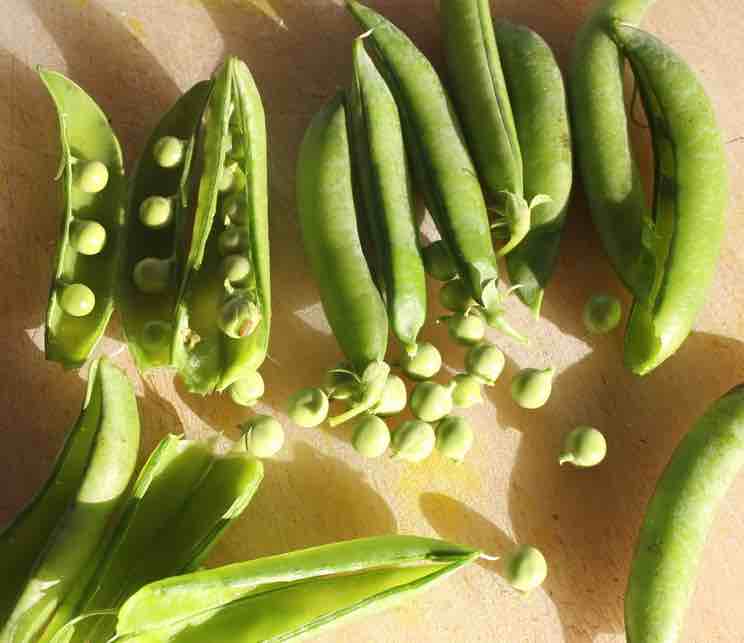
If you have time on your hands, pop the oats seeds out of their pods after soaking overnight. Liquidise them in your smoothies, sprinkle a few on a salad or whatever. In general we tend to toss far too much good food; think of ways to use anything that you strain off.
Add a slice of freshly-cut lime or lemon; remember more than half of the nutrients are found in the pulp which is also all too often discarded. Dissolve half a teaspoon of natural honey perhaps in your milky oats infusion if you have a sweet tooth; completely unprocessed it has anti-viral properties[1].
That doesn't apply to most honeys found in the grocery store, by the way.
Dry your milky oats pods
Place your milky oats pods on a tray or wire mesh and put them out in the hot sun to dry completely; it may take a few days. Store for year-round use.
I use a beeswax solar extractor to speed up the drying; it gets very hot. You don't want your oats getting mildew.
Oats milk
Oats milk is something quite different; and a drink that I recommend only for those who have an intolerance of dairy. Much of the goodness is extracted from the grain but you end up tossing away something of value; all the fibre that makes for a soft stool and nutrients for the microbiome.
Growing milky oats
Growing milky oats is very simple, even in a small garden. Two short rows is sufficient and you'll have a crop of peas too.
When browsing use right click and "Open Link in New Tab" or you may get a bad gateway signal.
The material expressed on this page is gleaned from the nutritional and environmental literature; it is clearly referenced. A plain distinction is made between the author's opinion and that which is scientifically proven. When in doubt consult your health professional.
To suggest a correction or clarification, write to Dr Bernard Preston here. Contact.
Newsletter
Our newsletter is entitled "create a cyan zone" at your home, preserving both yourself and Mother Earth for future generations; and the family too, of course. We promise not to spam you with daily emails promoting various products. You may get an occasional nudge to buy one of my books.
Here are the back issues.
- Lifestyle and ideal body weight
- What are ultra-processed foods?
- Investing in long-term health
- Diseases from plastic exposure
- Intensive lifestyle management for obesity has limited value
- A world largely devoid of Parkinson's Disease
- The impact of friendly bacteria in the tum on the prevention of cancer
- There's a hole in the bucket
- Everyone is talking about weight loss drugs
- Pull the sweet tooth
- If you suffer from heartburn plant a susu
- Refined maize meal and stunting
- Should agriculture and industry get priority for water and electricity?
- Nature is calling
- Mill your own flour
- Bake your own sourdough bread
- Microplastics from our water
- Alternative types of water storage
- Wear your clothes out
- Comfort foods
- Create a bee-friendly environment
- Go to bed slightly hungry
- Keep bees
- Blue zone folk are religious
- Reduce plastic waste
- Family is important
- What can go in compost?
- Grow broad beans for longevity
- Harvest and store sunshine
- Blue zone exercise
- Harvest and store your rainwater
- Create a cyan zone at your home
Did you find this page interesting? How about forwarding it to a friendly book or food junkie? Better still, a social media tick would help.
Address:
56 Groenekloof Rd,
Hilton, KZN
South Africa
Website:
https://www.bernard-preston.com